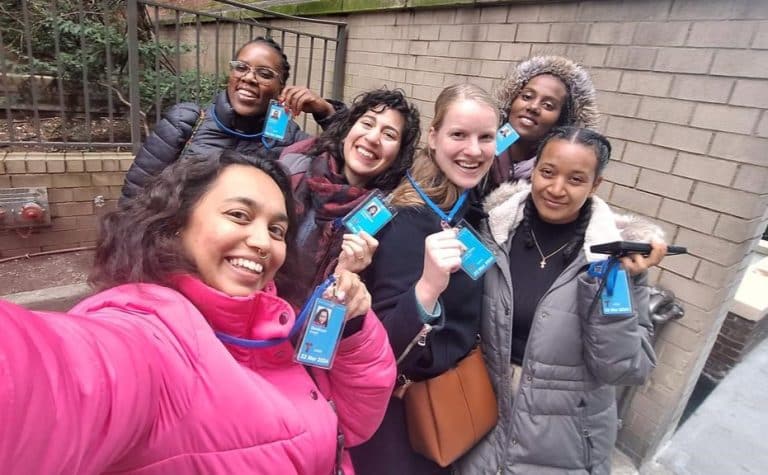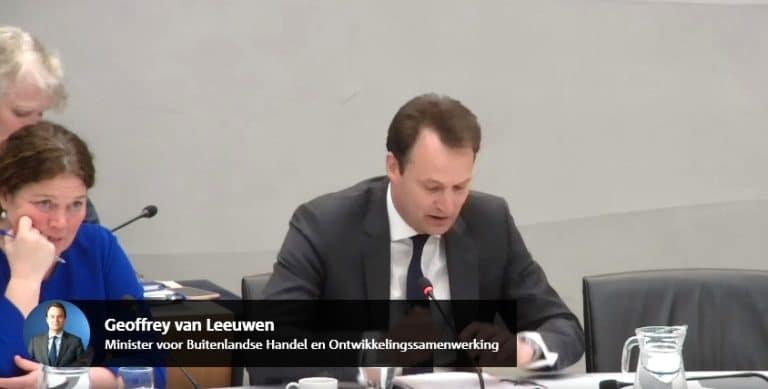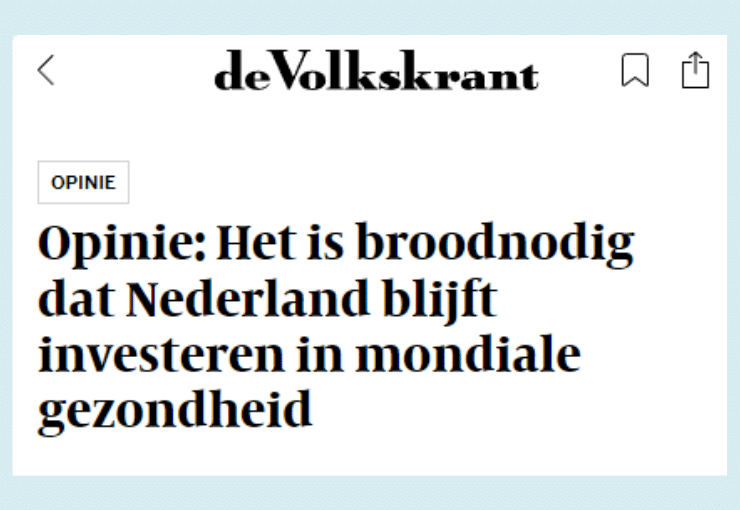On Wednesday April 25th, Professor Nicholas Freudenberg – author of ‘Lethal but Legal’ – will speak about corporate power and its detrimental effect on public health at an event in De Balie in Amsterdam. Both Wemos and the International Society of Drug Bulletins (ISDB) are organizers of the event.
Corporate consumption complex
For the past three decades, a network of organizations, producers, retailers, lobbying groups, trade associations, PR agencies, law firms, researchers and journalists has formed into what Freudenberg calls the corporate Consumption Complex. This network has the power to maintain a system which enables corporations to promote unhealthy lifestyles and unsustainable practices.
The pharmaceutical’s sector stranglehold
According to medicines expert Dick Bijl (ISDB), the medicines market has been inundated with countless medicines that are not therapeutically beneficial to patients and often have many side effects. It is estimated that each year there are approx. 200.000 fatalities due to medicines in the EU – most of these being preventable cases.
Bijl: ‘The pharmaceutical industry has created a situation in which it actually has become the head of the authorities that approve its medicines and monitor the medicines’ side effects. Politics and the government have accommodated this: they have thwarted themselves and have shown that they are not capable of providing the counterbalance against the harmful health effects of many medicines.’
According to Wemos global health advocate Ella Weggen, the industry’s stranglehold on the system is illustrated by the sky-high medicine prices. ‘Apart from the fact that many medicines do not have added therapeutic value, increasingly more expensive medicines come onto the market. Often they are so expensive that the government and insurance companies cannot reimburse them. And often the first phases of development of these medicines take place in public institutions, like universities. Someone who is severely ill is willing to do anything to get access to lifesaving medicines – an opportunity for the industry. There is much pressure on the government to reimburse everything that could be beneficial to patients, but for the health system, the rising medicine costs are just too much. Pharmaceutical companies’ profit often goes to shareholders and the medicines costs are not transparent. In the end, the patient bears the brunt.’
Consumer in a toxic environment
Unfortunately, not only patients bear the brunt. According to obesity specialist Professor Jaap Seidell (VU University Amsterdam), consumers too find themselves in a ’toxic’ modern environment, as the food industry uses strategic methods to influence health policy. ‘The health damage caused by the overconsumption of omnipresent cheap convenience food products with excess sugar, unhealthy fats and salt is enormous. The health costs of obesity in the Netherlands alone are estimated at more than € 3 billion a year due to (among others) health care costs and loss of productivity. The potential to cut costs is huge here. However, this given has not led to any legal intervention from the government in the food products supply, despite the fact that this could prevent much misery among citizens.’
According to Seidell, we must – as a society – choose effective policies and legislation. ‘Over the past decades, policy in the Netherlands was mainly aimed at providing healthy food and lifestyle information, whereas measures to counter the food industry were limited to encouraging self-regulation. We now know that this policy is not, or insufficiently, effective. It is time to choose – as a society – policies and legislation aimed at creating an environment that does not discourage consumers from making healthier choices, but one that makes such choices self-evident, and the unhealthy ones an exception.’
Not too naïve
For many, ‘Lethal But Legal’ will be an eye-opener, but Wim van Dalen (Director of STAP (Dutch Institute for Alcohol Policy)) has learned not to be too naive about companies’ strategies, such as that of the alcohol industry. ‘I have worked on several alcohol projects in Africa, including Uganda and Kenya. In that role, and also in my work in the Netherlands and Europe, I have repeatedly been confronted with the interests of the alcohol industry. I give two examples of two global giants: Dutch company Heineken (annual turnover of 23 billion in 2016) and the Belgian ABInBev (annual turnover of 43.6 billion in 2016). The growing turnover of the alcohol industry enables companies to invest substantially in product innovation and marketing, making them more and more a threat to public health. This threat can be sensed and seen in booming economies in particular, like in some African countries.
You may wonder why these large companies have been given so much room for so many years, enabling them to continue to promote their products – products that are outright harmful to public health. In his book, Freudenberg provides a clear, confrontational and factually painful answer to that question. A common strategy of the alcohol industry is to work towards becoming involved in discussions on important policy matters, at the highest political level. This of course also happens in The Netherlands. This is how the alcohol industry creates important personal links, with which they can form networks that in turn can be of crucial political importance at decisive moments. ‘
Visit to the Netherlands and Belgium
From April 23-25 Freudenberg will visit the Netherlands and Belgium: on April 23rd he will speak in the European Parliament, and on April 24th he will speak at a lunch meeting at the Dutch Ministry of Health, Welfare and Sports. On April 25th he will speak about his book in De Balie and explain the problem regarding the consumption complex. The event will start with an introduction by Ella Weggen. Other speakers will be Dick Bijl and pneumonologist Wanda de Kanter, who will use their expertise to reflect on the topic. General-practitioner Hans van der Linde will conclude the event with a debate. The event will be held in English.




